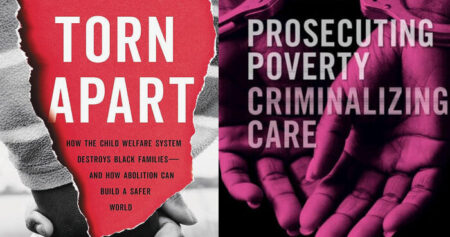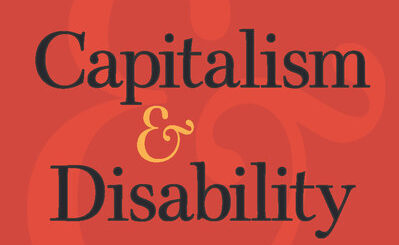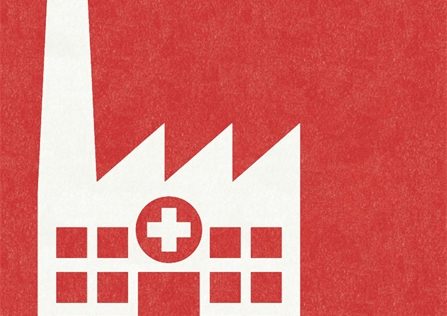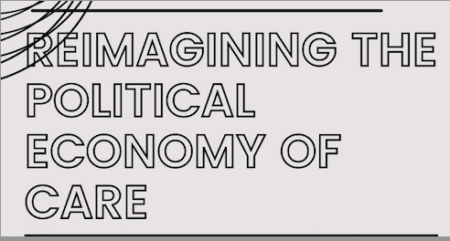
Turning the Fiscal State on its Head
How did Virginia School neoliberals transform the tax-collecting state into an engine of subtractive redistribution? How complete was their victory? And are they still winning in America today?

How did Virginia School neoliberals transform the tax-collecting state into an engine of subtractive redistribution? How complete was their victory? And are they still winning in America today?

Campus culture wars over DEI programs, gender nonconformity, and student debt cancellation might seem like distractions from the real problems facing higher education. However, they all tell us something important about the purpose of higher ed, because they all concern the central questions of hierarchy and its reproduction.

Javier Milei’s labor policies in Argentina highlight two often overlooked features of contemporary capitalism: the emergence of new labor subjects and the role of violence in processes of labor precarization. This production of precarity serves as a mechanism for framing certain lives as disposable and bolsters illegal economies that are increasingly replacing the welfare state’s promise of social inclusion.

Before the Blog goes on our August hiatus, we say farewell to Angela Harris, Sanjukta Paul, Caroline Parker, and Ann Sarnak. We also welcome Veena Dubal, Aziz Rana, and Karen Tani to our editorial board, and Kate Yoon to our editorial staff. Plus, to tide you over until September, we count down the top ten most read posts of 2023.

Throughout America’s history, the deep-seated idea that poverty is fundamentally a moral failing on the part of the poor has shaped social welfare policies and practices. If they could run their lives properly, the logic goes, they would not be poor in the first place. Accordingly, poor and non-white folks cannot be trusted to care for their children, and thus need to be coerced, through the threat of punishment, into forms of supposedly “therapeutic” state interventions.

Sabeel Rahman on the Biden Administration’s overhaul of the regulatory review process, Yanbai Andrea Wang on the role of civil procedure in U.S.-China Relations, and Alex Wang on the benefits of empathy in comparative legal analysis. Plus, interviews with Julie Suk on her new book and Gabriel Winant on class composition in the 21st century, new essays by Molly Coleman, Aaron Benanav, and Tim Barker, and a student note that endeavors to analyze US election law through an LPE lens.

Forget Netflix, Hulu, and Amazon. Over the next three days, you’ll want to turn that dial to Law and Political Economy: Labor, Social Control, and Counterpower. From the comfort of your own home, stream panels on the legal regulation of data and technology, socialist constitutionalism, decarcerating the welfare state, and so much more. Zoom links for the various panels can be found within this post, along with some paired blog posts from our (vast) archive.

As a result of jail and prison expansion in Eastern Kentucky, the region has become a center of gravity in the fight over the future of the carceral state. To understand this carceral boom, we need to appreciate how multiple crises have converged in Eastern Kentucky to produce a historical moment – a conjuncture – in which prisons and jails serve as putative solutions to a variety of social and economic problems.

In the escalating wave of anti-trans legislation and administrative violence sweeping the United States over the past several years, the credo on the left has often been that political violence against trans people is mere pretense: a right wing culture war meant to distract from issues more properly political-economic, or a cynical ploy to motivate a conservative voting base. This superficial reading is as naïve as it is dismissive of trans people’s material circumstances. What we need, instead, is a materialist critique that identifies state transphobia as dedicated to the broader neoliberal goal of dismantling public goods and modes of care in the name of cost reduction.

As a field of law, labour law draws it legitimacy from its capacity to impose a stable order on a conflictual relationship of power and exploitation, and to institutionalize such order as one of justice between classes. Because of this function, labour law is and must be open to contestation and change by those affected by it, responsive to pressures not just for internal dogmatic consistency or external economic efficiency but also for human interests and demands for non-commercial social justice.

Deborah Dinner is a Dorothea S. Clarke Professor of Law at Cornell Law School. Areas of Expertise: work and family, gender equity, welfare state, law and work, feminist legal theory, and social reproduction.

Postwar steelworkers and contemporary healthcare workers inhabited strikingly different economic circumstances. Yet in both eras, courts allocated to companies various powers they could use to impose market discipline on workers, thereby facilitating the degradation of work.

What happens when the factory is gone and the working class has been rendered dispersed and invisible? In this post, Gabriel Winant kicks off a symposium on his recent book, The Next Shift: The Fall of Industry and the Rise of Health Care in Rust Belt America.

The LPE Project and the Global Health Justice Partnership (GHJP) are co-sponsoring a series of events on health, social reproduction, and crises of care. “Reimagining the Political Economy of Care” emphasizes the role of care work in sustaining and reproducing society, including our conceptions of gender, race, and ability. While centering the conditions of workers…

This is the first event in a year-long co-sponsored series between the LPE Project and the Global Health Justice Partnership on health, social reproduction, and the crisis of care: “Reimagining the Political Economy of Care.” “Care as Labor, Care as Infrastructure” When the Biden Administration included care in its proposals for new infrastructure spending, it…